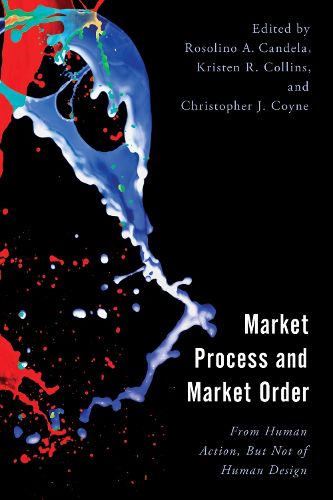Readings Newsletter
Become a Readings Member to make your shopping experience even easier.
Sign in or sign up for free!
You’re not far away from qualifying for FREE standard shipping within Australia
You’ve qualified for FREE standard shipping within Australia
The cart is loading…






This volume explores and engages the key thinkers and ideas of the Austrian School of political economy to better understand various aspects of the market process, or the way that individuals coordinate their separate interests in a peaceful and productive manner by unintentionally forming not only market prices but also rules, customs, cultural norms and other institutional arrangements that allow specialization and trade. Together, these dynamics generate a market order by ameliorating the potential for social conflict, and in turn, facilitating the conditions for social cooperation and specialization under the division of labor. Scholars in this tradition focus on how individuals, however imperfect they may be in their decision-making, are nevertheless guided by private property, prices, and profit and loss signals, which emerge out of human action, but not necessarily human design. The diversity in topics and approaches will make the volume of interest to readers in a variety of fields, including anthropology, economics, entrepreneurship, history, philosophy, political science, and public policy.
$9.00 standard shipping within Australia
FREE standard shipping within Australia for orders over $100.00
Express & International shipping calculated at checkout
This volume explores and engages the key thinkers and ideas of the Austrian School of political economy to better understand various aspects of the market process, or the way that individuals coordinate their separate interests in a peaceful and productive manner by unintentionally forming not only market prices but also rules, customs, cultural norms and other institutional arrangements that allow specialization and trade. Together, these dynamics generate a market order by ameliorating the potential for social conflict, and in turn, facilitating the conditions for social cooperation and specialization under the division of labor. Scholars in this tradition focus on how individuals, however imperfect they may be in their decision-making, are nevertheless guided by private property, prices, and profit and loss signals, which emerge out of human action, but not necessarily human design. The diversity in topics and approaches will make the volume of interest to readers in a variety of fields, including anthropology, economics, entrepreneurship, history, philosophy, political science, and public policy.